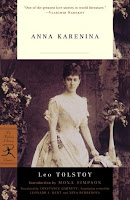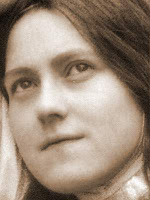 A friend sent this quote from Edith Stein's Essays on Woman. I thought it a fitting help for the first day of Lent, when the fast is new and fresh and terrible.
A friend sent this quote from Edith Stein's Essays on Woman. I thought it a fitting help for the first day of Lent, when the fast is new and fresh and terrible."Mary is the most perfect symbol of the Church because she is its prefigurement and origin. She is also a unique organ of the Church, that organ from which the entire Mystical Body, even the Head itself, was formed. She might be called, and happily so, the heart of the Church in order to indicate her central and vital position in it. The terms body, head, and heart are of course simply metaphors.But their meaning, nevertheless, is somehow absolutely real. There is a distinctive coherence between head and heart, and they certainly play an essential role in the human body; all other organs and limbs are dependent on them for their existence and function. Just as certainly, through her unique relation with Christ, Mary must have a real--that means here a mystic--relationship with the other members of the Church. This relationship extends far above that of the other members in intensity, nature, and importance; it is analogous to the relationship which a mother has with her children, a relationship surpassing that which the children have amongst themselves. The title of Mary as our mother is not merely symbolic. Mary is our mother in the most real and lofty sense, a sense which surpasses that of earthly maternity. She begot our life of grace for us because she offered up her entire being, body and soul, as the Mother of God.
That is why an intimate bond exists between Mary and ourselves. She loves us, she knows us, she exerts herself to bring each one of us into the closest possible relationship with the Lord--that which we are above all supposed to be. Of course, this is true for all humanity, but most particularly for women. The maternity and bride hood of the Virgo-Mater is continued, so to speak, in their maternity, natural and supernatural, and in their life as brides of Christ. And just as the heart sustains the other organs of woman's body and makes it possible for them to function, so we may genuinely believe there is just such a collaboration of Mary with every woman wherever that woman is fulfilling her vocation as woman; just so, there is a collaboration of Mary with us in all works of the Church. But just as grace cannot achieve its work in souls unless they open themselves to it in free decision, so also Mary cannot function fully as a mother if people do not entrust themselves to her. Those women who wish to fulfill their feminine vocations in one of several ways will most surely succeed in their goals if they not only keep the ideal of the Virgo-Mater before their eyes and strive to form themselves according to her image but if they also entrust themselves to her guidance and place themselves completely under her care. She herself can form in her own image those who belong to her.
p. 240-241


























